We get it — when you think of Dutch cuisine you’re probably thinking ‘fried’, ‘potato’ or ‘beige’.
But trust us, the Dutch definitely know their way to your heart, and it’s plastered with cookies, cakes, and other mouth-watering toetjes (sweets).
So here are 11 Dutch treats you definitely have to try. (And we’re talking ASAP — there are too many treats and not enough time!). 🏃♂️
1. Appeltaart: a classic Dutch treat with a twist
This Dutch version of the American apple pie, the German Apfelkuchen, or the French Tarte aux pommes, leaves absolutely nothing to be desired.
The appeltaart is so popular in the Netherlands that you will hardly find a café without this food item on the menu.
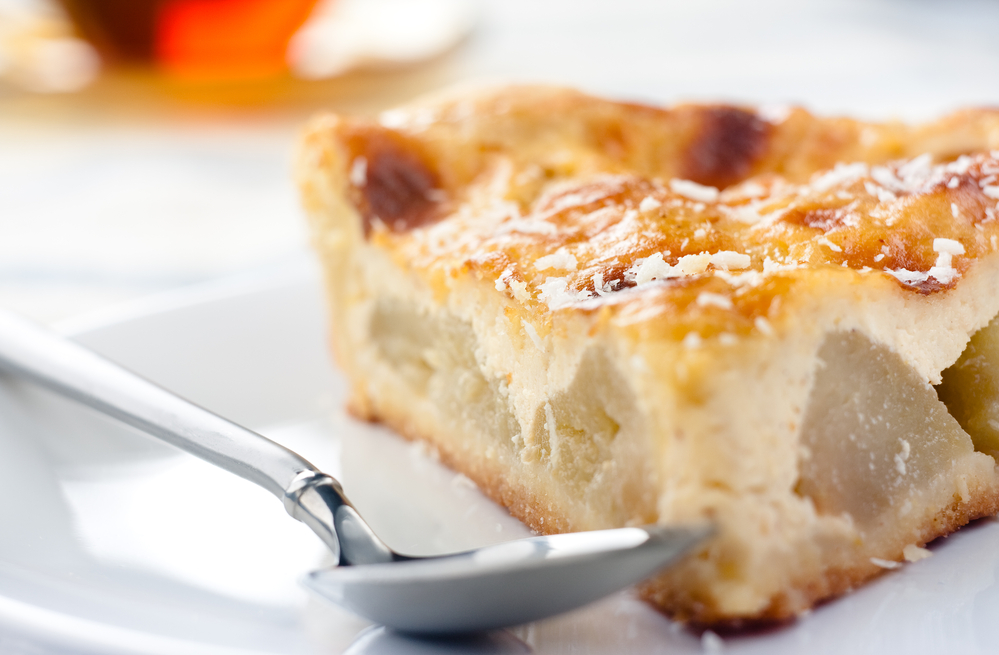
What differentiates the Dutch appeltaart from its brothers and sisters in other countries is the thick apple chunk filling. Occasionally, some sneaky raisins make their way in there too. And, of course, always cinnamon!
READ MORE | 7 Dutch foods you need to try before you die
Always order your appeltaart with a helping of slagroom (whipped cream)! Or a steaming cup of koffie verkeerd (coffee with milk/latte). (Or both, you won’t regret it!). 😋
2. Bossche bol: the whipped cream dream
This Dutch treat is definitely not talked about enough.
Bossche bollen are balls of whipped cream enclosed in a layer of dough wrapped in dark chocolate fondant. Lekker!
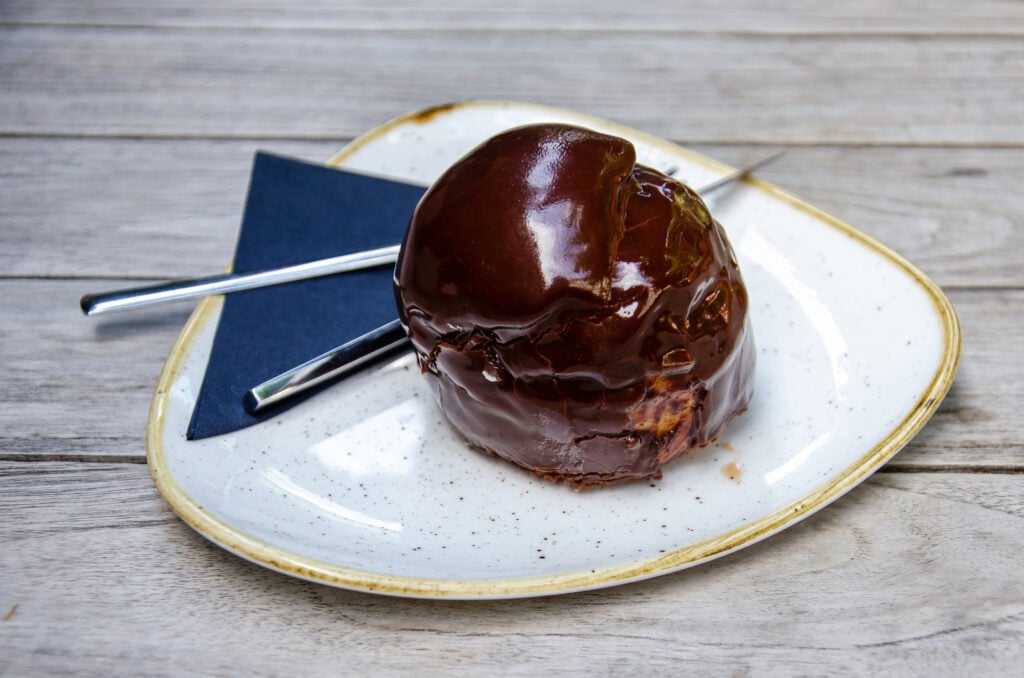
These bad boys are roughly the size of an apple which you can eat with your hands. Pro tip: don’t wear a white t-shirt when eating one of these delicious Dutch treats — they can get messy. 😉
3. Tompouce: the pink pastry dividing the Dutch
Ohh…the tompouce. This Dutch favourite is a square cake with a state-of-the-art pink glaze on top. The centre consists of a thick, creamy vanilla custard filling balanced on a thin piece of puff pastry.
The tompouce deserves special attention for a multitude of reasons.
First of all, it’s heel popular in the Netherlands. The store-chain HEMA says that the tompouce is their most sold baked good. 14 million pieces are bought each year — 14 million!
This dainty cake is also notorious for dividing the Dutch over how best to eat it.
Some Dutchies like to separate the top layer of pink-glazed puff pastry to eat last. Some pick the tompouce up with both hands and eat it like a sandwich. Others tip the tompouce on its side and (try to) elegantly cut through lengthwise to have two equal halves.
READ MORE | The Dutch food dream: 13 unmissable dishes in the Netherlands
Apparently, there are 12 different ways of eating a tompouce. That’s a lot of controversy for such an innocent-looking (and lekker) cake. 😋
Fun fact! Since 2023, this treat also exists in an alternative version – the crompouce! As the name suggests, it is a hybrid between a croissant and a tompouce. Which one is better, you ask? There’s only one way to find out. 😋
4. Stroopwafel: the Dutch syrup sandwich
The stroopwafel (syrup waffle) is hands down the Netherlands’ most popular food export! Well deserved because these thinly layered waffles with a smooth caramel filling are seriously delicious.
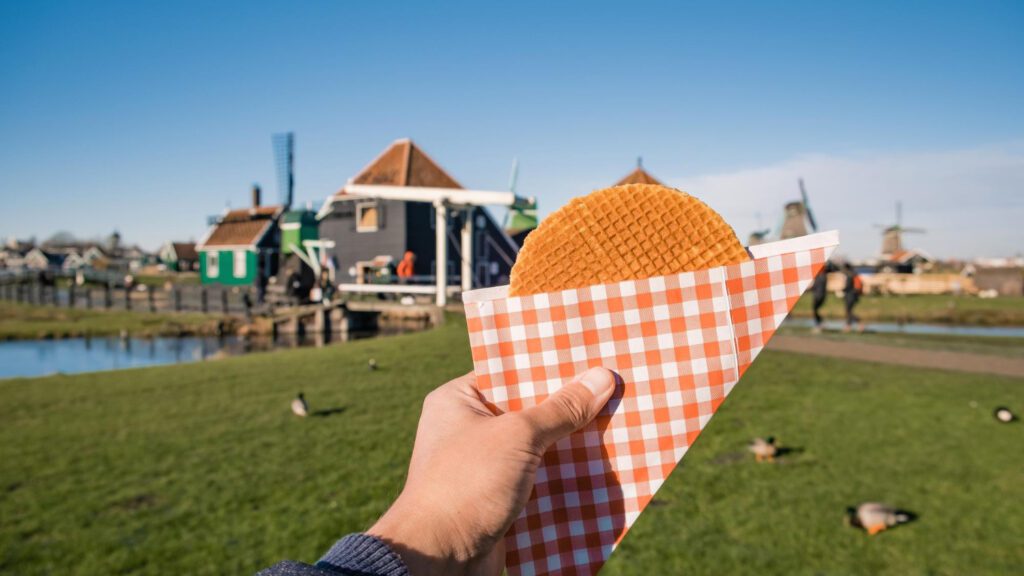
Ideally, you’ll get yourself one fresh from the market (hot, gooey, and sweet 😍), or you could buy the supermarket version and pop it in the microwave for eight to 10 seconds. It gives off the same effect but is admittedly less elegant.
READ MORE | Stroopwafels unwrapped: Discover the sweet story behind the Dutch classic
If you’re feeling adventurous, stroopwafels come in an assortment of different flavours ranging from honey to chocolate to lavender — there is a whole world of stroopwafels for you to explore.
TIP: Sit your stroopwafel on top of your coffee cup and let the steam melt the inside caramel. It’s delicious, and you’ll look like a real Dutchie! 🇳🇱
5. Vla: The Dutch pudding
Vla is basically pudding or custard, just a little more watery — and the Dutch love it.
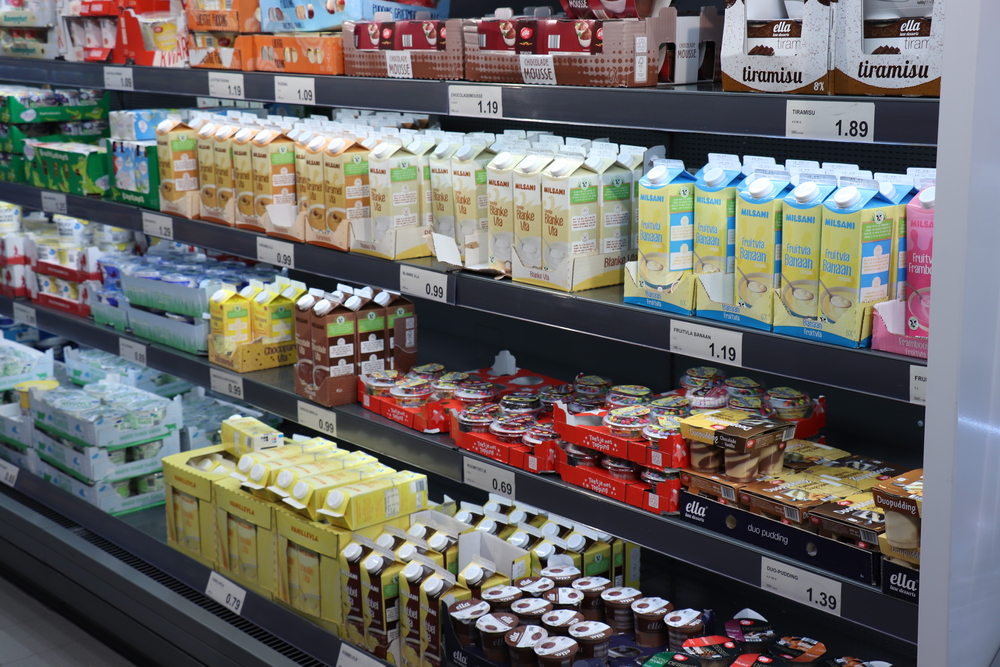
Enter any supermarket in the Netherlands, and you will see an array of vla lined up in the cooling aisle. They are packaged in milk cartons, and no flavour is left out: vanilla, chocolate, strawberry, caramel. And there are often seasonal selections, too — like apple pie!
The best thing about vla is that you can get creative when eating it! Top it with oats and bananas for breakfast, or to make it a real sweet treat, sprinkle some hagelslag (chocolate sprinkles) or spritz whipped cream on top.
Or just chug it right out of the box if you’re feeling ravished. The options are endless!
6. Spekkoek: the (literally and figuratively) multi-layered Indonesian-Dutch treat
The literal translation of this Dutch toetje is ‘fat cake’ or ‘bacon cake’ — doesn’t that sound inviting? 👀
If you can get over the name, however, you definitely won’t be disappointed.
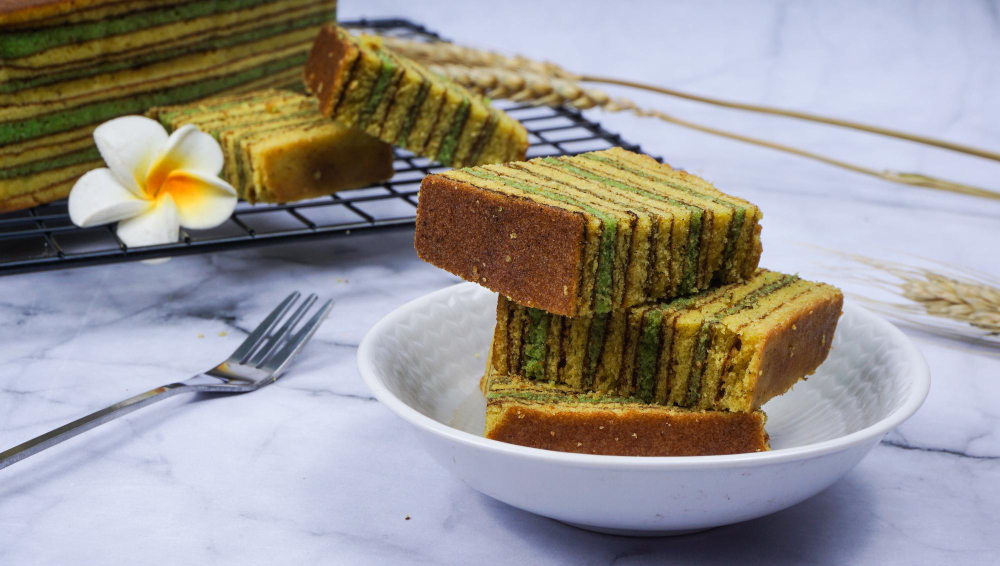
Like many Dutch sweets, spekkoek is packed full of spices. From cardamom, cinnamon, cloves, and ginger — this multi-layered cake really has it all.
READ MORE | Dutch Quirk #32: Eat a lot of very questionable snack food
Not only is it rich in flavour, but this cake also has a rich history. The treat is thought to be a product of Dutch colonialism in Indonesia, where a similar version of the “thousand-layer cake” is served during the holidays.
7. Boterkoek: the Dutch buttery sugar bomb you have to love
The Dutch ‘butter cake’ is exactly what the name describes it as. The boterkoek mainly consists of butter, sugar, and flour — and is therefore suitable for even the pickiest eaters.
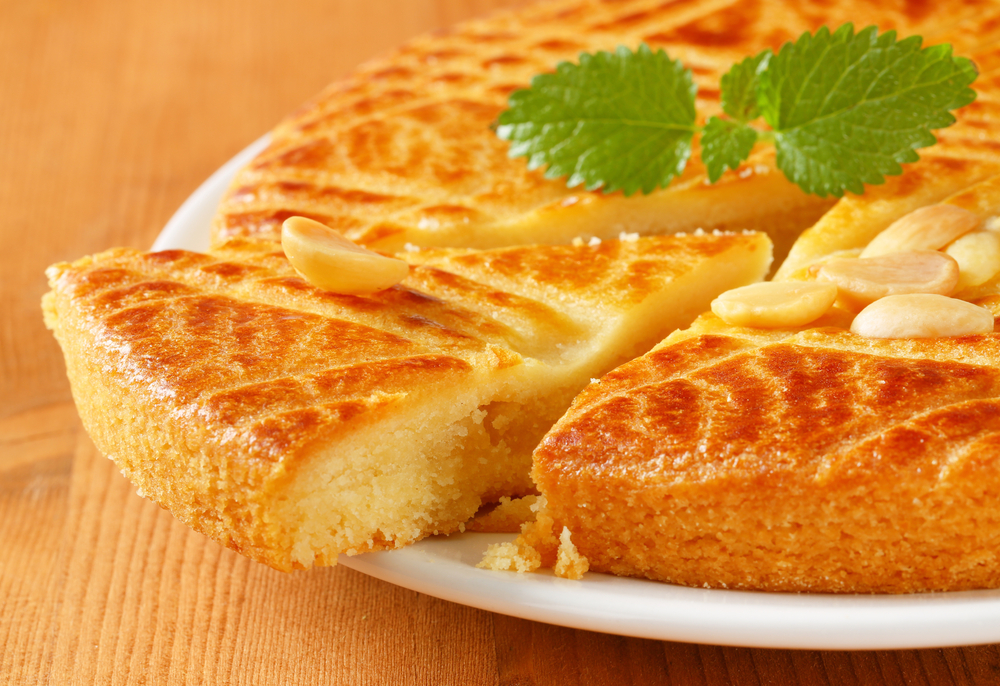
You can easily recognize the boterkoek by the typical criss-cross pattern on the top, sometimes buried under a layer of roasted almonds for an extra kick.
READ MORE | Your guide to all the ‘lekker’ Dutch festive food and drinks you can enjoy (guilt-free) this holiday season
This cake is genius in its simplicity that we really don’t have much to say. Except to try it, of course!
8. Oliebollen: the ultimate Dutch New Year’s treat
If you’re not familiar with Dutch holiday traditions, you might be wondering what the frick are oliebollen? Well, don’t worry, that’s what we’re here to tell you.
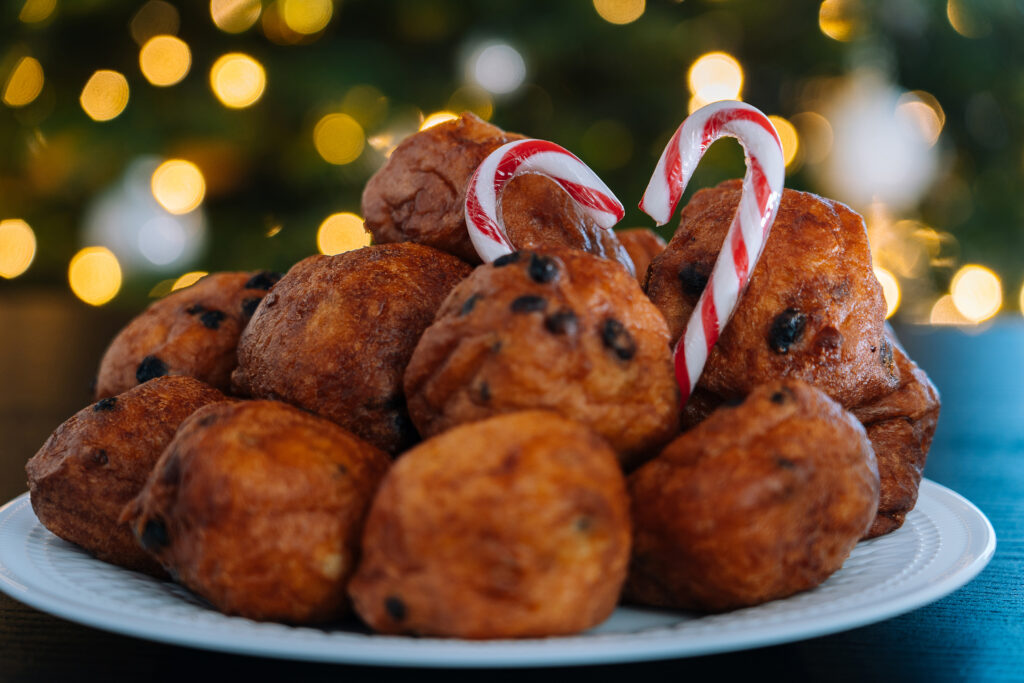
An oliebol, literally translating to ‘oil ball’ (mmm, appetising), is a deep-fried dough ball dusted with powdered sugar.
It sounds simple, but it’s also absolutely delicious. You can get different variations, for example, with raisins or apple pieces.
One thing is certain, they’re best enjoyed after a wintery cold afternoon walk, hot and steaming directing from an oliebollenkramen.
READ MORE | Let’s talk cheesy: cheese tourism in the Netherlands
As soon as Christmas and New Year start approaching, you’ll see oliebollenkramen (oliebollen stands) pop up all over the country. In supermarkets, frozen oliebollen are moved right to the front of the shelves. Lekker!
8. Gevulde speculaas: like speculaas cookies, but the cake version
Another Dutch holiday treat: anything speculaas. Especially, gevulde speculaas.
You might have come across the Dutch speculoos cookie, a flat, sweet, crispy thing pressed in the form of Dutch houses or windmills.
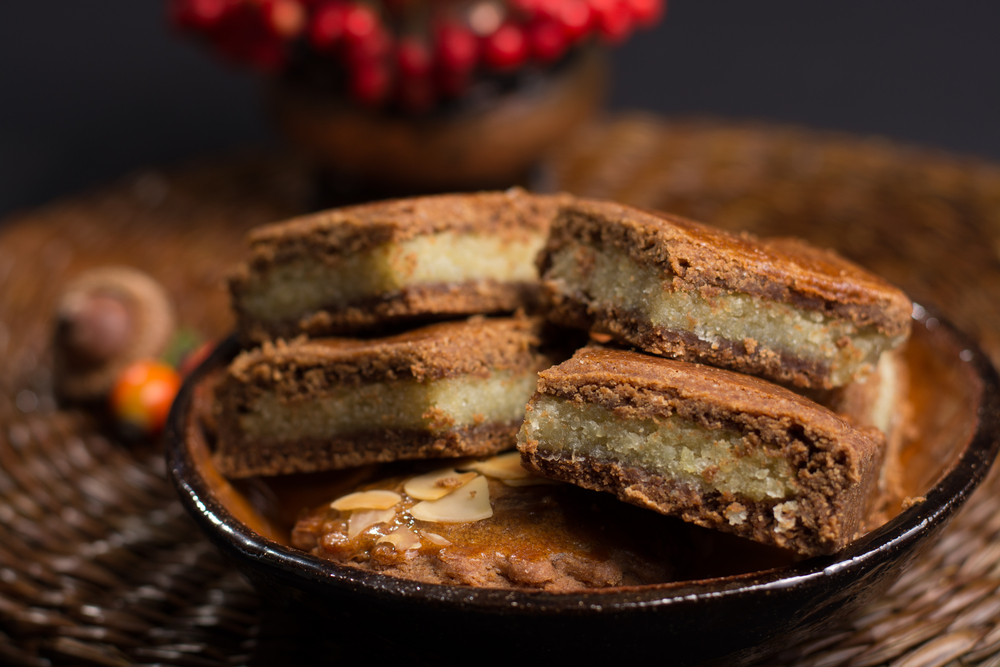
Well, gevulde speculaas (filled speculoos) takes it up a notch. What gives the two treats the same name is the spice mixture, which gives this distinct speculoos-y flavour.
The ultimate difference is that gevulde speculaas is more of a small cake than a cookie. And it’s filled with a deliciously sweet marzipan filling. Yum!
10. Kruidnoten: the teeny-tiny treats that taste like Christmas
As soon as Sinterklaas approaches, you’ll find these little button-sized biscuits stocking the shelves of every supermarket in the Netherlands.
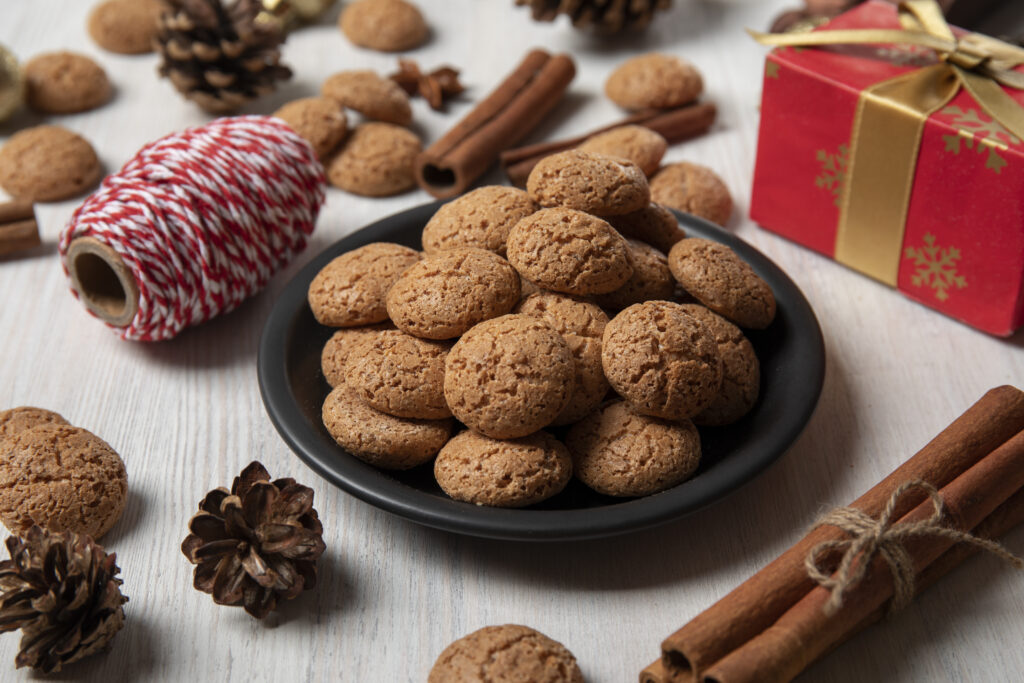
You might, by the way, know these Dutch treats under the name ‘pepernoten’. Don’t worry, that’s an honest mistake, and even Dutch people typically don’t know the difference.
READ MORE | 3 weird Dutch food ‘things’ that will make you cry/laugh
To clarify once and for all: kruidnoten are small dome-shaped spiced biscuits made from wheat flour. Pepernoten, on the other hand, are based on rye flour and flavoured with honey and anise.
While kruidnoten have a uniform size, pepernoten come in different shapes and sizes.
You’ll most likely be popping kruidnoten into your mouth while having a Christmas movie night.
11. Limburgse vlaai: the tri-national fruit tarte
Last but not least, the cherry on top of the cake (almost, quite literally). ✨ Popular in Belgium, Germany, and the Netherlands, the Limburgse vlaai is a real crowd-pleaser.
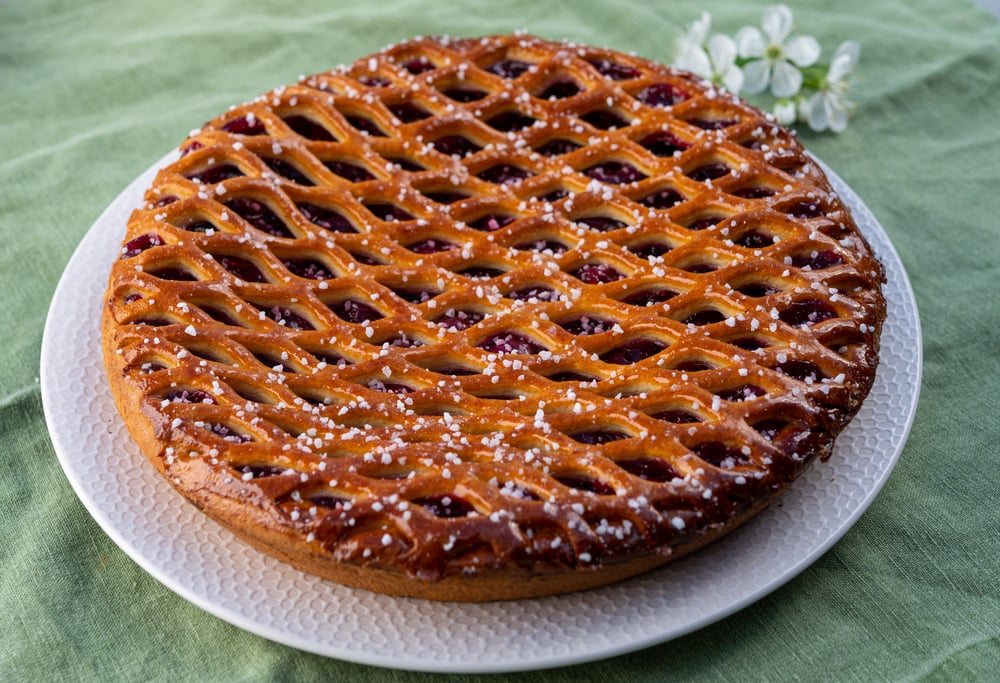
To be honest, who would turn down a piece of taart filled with sweet and juicy fruits? Traditionally, the Limburgse vlaai is filled with plums, but there are also variations with sour cherries or apples.
READ MORE | Dutch Quirk #38: Mush all of their dinner food (prakken)
The most important thing for the cake to be a true Limburgse vlaai is the unmistakable criss-cross pattern on top.
The cake originates from the Dutch province Limburg (duh) in the south of the country, which is nestled in between its Belgian and German neighbours. Consequently, some version of the cake exists in all three countries.
Did we miss one of your favourite Dutch toetjes? Tell us in the comments below!





Cafe Noirs are another favorite
“The cake originates from the Dutch province Limburg (duh) in the south of the country, which is nestled in between its French and German neighbours.”
Hopefully no Belgian will read it!
Interesting now how about some recipes?
Banket!
You should include oranje koek, you might need to travel to Friesland but it is really good
How about some recipes? Also you forgot sausage breads. Kroketten, bitterballen, blanket, gevulde koek, bitterkoekjes among many other treats!